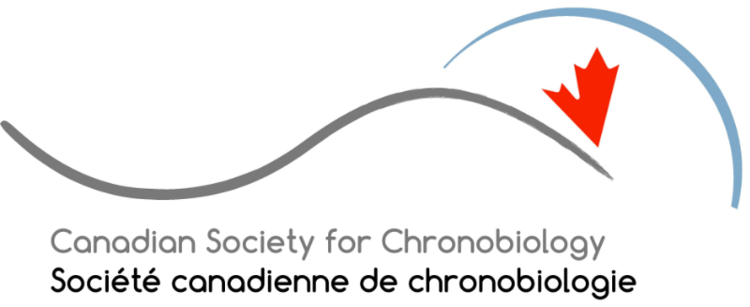Laboratories of CSC Members
Here is the information about the laboratories of CSC members. If you are a Regular member of the CSC and would like your lab listed here, contact us at chronobio.canada@gmail.com.
Shimon Amir's Laboratory (Shimon Amir), Center for Studies in Behavioral Neurobiology, Psychology, Concordia University, Montréal, QC
Michael Antle's Chronobiology Lab (Michael Antle), Department of Psychology, Hotchkiss Brain Institute, University of Calgary, Calgary, AB
Our lab studies photic and non-photic resetting of the mammalian circadian clock with behavioural, pharmacological and histological techniques. We are also interested in the function of the various distinct cells groups that make up the suprachiasmatic nucleus.
Centre for Study and Treatment of Circadian Rhythms (Diane B. Boivin), Douglas Mental Health University Institute, McGill University, Montreal, QC
Circadian Genomics Laboratory (Ghislain Breton), Department of Integrative Biology and Pharmacology, University of Texas Health Science Center at Houston
The circadian clock controls thousands of genes at specific time of the day. Using a combination of functional genomics, genetics and physiology in Arabidopsis and Zebrafish, our lab is studying clock-regulated transcription factors and their downstream targets.
Laboratory of Molecular Chronobiology (Nicolas Cermakian), Douglas Mental Health University Institute, McGill University, Montreal, QC
Research in the laboratory deals with the molecular mechanisms underlying circadian clocks in mice and humans, and how these clocks can regulate different physiological systems, in particular the immune response.
Laboratory of Molecular Neurobiology (Hai-Ying Mary Cheng), Department of Biology, University of Toronto, Mississauga, ON
Human Chronobiology Laboratory (Marie Dumont), Center for Advanced Research in Sleep Medicine, Hôpital du Sacré-Coeur de Montréal, Université de Montréal, Montréal, QC
Pain Chronobiology and Neuroimmunology Lab (Nader Ghasemlou), Departments of Anesthesiology and Biomedical & Molecular Sciences, Queen’s University, Kingston, ON
Our lab studies the intersection of chronobiology and neuroimmunology, with a focus on functional outcomes including pain and disability. Circadian rhythms are used as a method to modulate both the nervous and immune systems, affecting functional outcomes, in both laboratory animals and human subjects.
Karpowicz Laboratory (Phillip Karpowicz), Department of Biomedical Science, University of Windsor, Windsor, ON
We study circadian rhythms in the digestive tract, with a focus on stem cell biology and how the loss of rhythms impacts health and disease.
Patricia Lakin-Thomas' Lab (Patricia Lakin-Thomas), Dept of Biology, York University, Toronto, ON
We study circadian rhythms in the fungus Neurospora crassa, and we view its clock as a multi-oscillator system. We are identifying genes involved in maintaining rhythmicity in the absence of the FRQ-based feedback loop, with the goal of describing the mechanism of the FRQ-less oscillator (FLO).
Joel Levine's Chronobiology Lab (Joel Levine), Department of Biology, University of Toronto Mississauga, ON
Our lab uses Drosophila to study the genetic basis of social behaviour. The circadian timing system coordinates reproductive behaviour and may play a role in aggregation. Current studies focus on molecular mechanisms that coordinate the brain clock with a peripheral clock in cells that manufacture sex pheromones.
Circadian Cardiovascular Research Lab (Tami Martino), Department of Biomedical Sciences, OVC, University of Guelph, Guelph, ON
Sleep and Circadian Neuroscience Laboratory (Ralph Mistlberger), Department of Psychology, Simon Fraser University, Burnaby, BC
We study the formal properties and neural mechanisms of circadian rhythms in mammals, with a special focus on entrainment of circadian clocks by nonphotic stimuli, including behavioural arousal and meal timing. We also conduct research on neural and behavioural consequences of sleep deprivation and countermeasures for sleepiness on the night shift.
Molecular Sleep Physiology Lab (Valérie Mongrain), Center for Advanced Research in Sleep Medicine, Hôpital du Sacré-Coeur de Montréal and Department of Neurosciences, Université de Montréal, Montréal, QC
The molecular regulation of sleep and biological rhythms. Links between sleep homeostasis and synaptic plasticity. Involvement of synaptic adhesion proteins in regulating sleep. Pathophysiology of sleep disorders and associations between sleep disorders and psychiatric diseases.
David Morse Laboratory (David Morse), IRBV, Sciences Biologiques, Université de Montréal, Montréal, QC
We study the biochemical modifications that let the dinoflagellate Lingulodinium perform different tasks better at certain times of day. Our particular interests include the circadian rhythms of bioluminescence, cell division, nitrate metabolism and photosynthesis.
Rachel Wevrick's Laboratory (Rachel Wevrick), Department of Medical Genetics, University of Alberta, Edmonton, AB
We focus on genetic disorders that affect human development, with specific interests in pediatric obesity, intellectual disability, and circadian rhythm. We are studying the roles of specific genes inactivated in the neurodevelopmental disorder Prader-Willi Syndrome (PWS), using molecular, cellular and animal models
© Canadian Society for Chronobiology 2023
